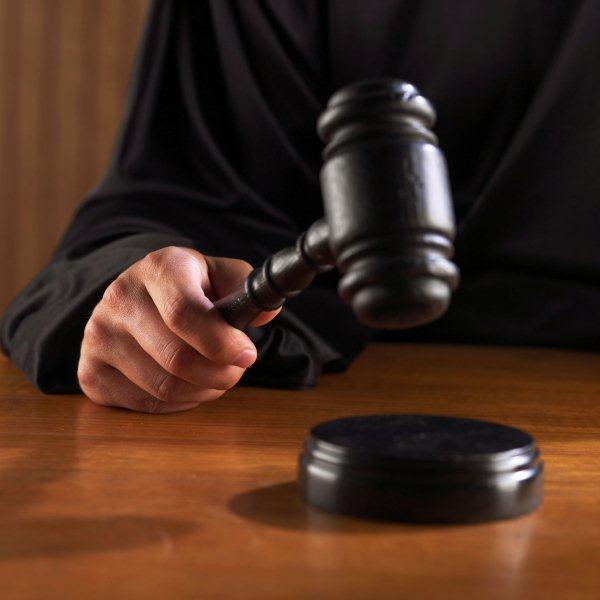The honest and timely disclosure of Safety Reports
By Nicholas Millar, Solicitor
 In a recent judgement the Personal Injuries Judge drew attention to the enactment in 2002 of the Safety Officers and Safety Supervisors Regulations whereby proprietors of industrial undertakings are required to employ safety officers. Those safety officers are charged with the duty to assist proprietors in promoting safety and health of persons employed including, to paraphase, investigating and reporting as to the circumstances of any accident or dangerous occurrences in the industrial undertaking, to investigate the circumstances of suffering of bodily injury to any person and to investigating or reporting as to every fatal accident and making recommendations to prevent similar fatal or none accidents in the future.
In a recent judgement the Personal Injuries Judge drew attention to the enactment in 2002 of the Safety Officers and Safety Supervisors Regulations whereby proprietors of industrial undertakings are required to employ safety officers. Those safety officers are charged with the duty to assist proprietors in promoting safety and health of persons employed including, to paraphase, investigating and reporting as to the circumstances of any accident or dangerous occurrences in the industrial undertaking, to investigate the circumstances of suffering of bodily injury to any person and to investigating or reporting as to every fatal accident and making recommendations to prevent similar fatal or none accidents in the future.
The regulations make clear that the industrial undertakings include construction sites and that a “proprietor” includes a principal contractor.
Thus all principal contractors of construction sites should employ [at least] one qualified safety officer in carrying out his statutory responsibilities including that the safety officer is required to investigate and provide a[n honest] report as to accidents, particularly where people are injured or killed.
It should be trite to say that those investigations and resulting reports are automatically discoverable (i.e. to be provided) to anybody claiming for or on behalf of somebody who has been injured or killed on a construction site, and this is a positive duty to disclose without being specifically requested for such. Indeed this should be done prior to any legal action being commenced. Unfortunately that is not the position that normally pertains.
As the Judge remarked “proprietors” often stamp such reports as being “private and confidential” or “subject to legal privilege” or similar. If they do not, then their insurers may do. The legal test as to whether a document is privileged (and does not have to be disclosed in litigation) is as to the dominant purpose for which it came into existence. It should be self-evident that where a document comes into existence pursuant to a statutory requirement then, whatever other purposes for which that document may be useful, the primary purpose for which it comes into existence is in compliance with the statutory requirement and, as such, cannot be privileged and must be disclosed.
In the particular action the safety officer’s report had been prepared but was not disclosed by the defendants’ representatives because, according to them, “the other side had not asked for it.”
 The importance of such disclosure is demonstrated by the fact that after the report was produced, following the Judge’s enquiry, the defendants conceded liability!
The importance of such disclosure is demonstrated by the fact that after the report was produced, following the Judge’s enquiry, the defendants conceded liability!
The Judge said “it lies ill in the mouth of the reputable and experienced personal injuries solicitors representing the defendants to say that they did not disclose the site safety officer’s accident report because the plaintiff did not ask for it”.
Such failure to voluntarily produce is common amongst defendants representatives, whether insurers or their solicitors. The writer has acted in several cases where specific request has been made for such site safety investigation reports and they have not been voluntarily forthcoming or, more usually, only forthcoming as part of the formal discovery process in the legal action, which is of course after the injured parties claim has been formulated and usually after a defence has been put in.
The accident in the particular case occurred in March 2008. Since the civil justice reforms came into effect in April 2009 any action brought thereafter has to have, to all pleadings (which includes the defence as well as statement of claim) a statement of truth appended as to the facts stated in the pleading as being true. It is perhaps something for another time but the writer questions as to how defences are put in, appended with a statement of truth, and yet still admissions of liability based on fact are subsequently made.
One of the purposes of the Lighthouse Club is to aid individuals who are in unfortunate financial circumstances as a result of being injured on a construction site or where, sadly, people have been killed then to assist their families. The writer has acted in more than one case where the family of a deceased, or an injured person, has quickly been given a (relatively small but still much appreciated and needed) amount of money by the Lighthouse Club following a fatality or serious injury. It is unfortunate that claims made by or for injured people to obtain monetary “compensation” [often of a relatively paltry or inadequate amount given the nature of the injury or the death of a person] as a result of the negligence of others is hampered or delayed by actions such as principal contractors or their representatives flouting or delaying the consequences of statutory obligations as to the investigation of accidents.











